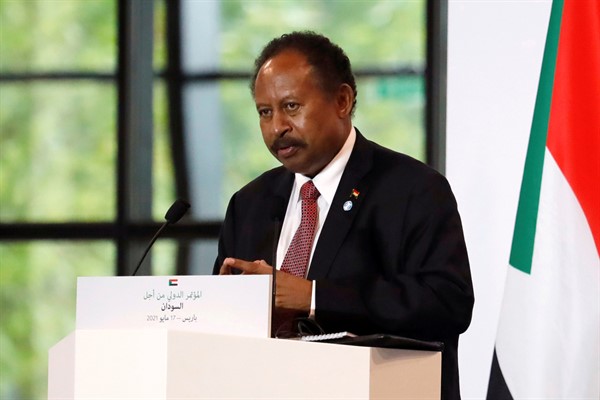Sudanese Prime Minister Abdallah Hamdok didn’t mince words about his country’s future during a press conference last month, putting his concerns about the growing tensions between the civilian and military sides of the fragile transitional government in existential terms. “The big question today is will Sudan exist or not exist,” he said. The week before, Hamdok delivered a rare televised address in which he warned the country could fall into civil war between multiple armed groups and different factions of the Sudanese military.
The alarming remarks come at a pivotal time for Sudan, which next month will mark the second anniversary of its interim constitution. Signed in August 2019, months after the popular uprising that resulted in Bashir’s ouster, the constitutional declaration created a transitional government that was to share power between military and civilian leaders for 3 years and 3 months, after which national elections were to be held. However, that clock was reset to zero in a peace agreement the transitional government signed last year with armed rebel groups, meaning elections are now scheduled for early 2024.
More than two years after the revolution, Sudan’s democratic future does not look promising. A fraught relationship between Sudan’s generals and civilian leaders like Hamdok has made intra-government coordination difficult at a time when leaders need to address a persistent economic crisis, integrate armed rebel groups into the national army and resolve thorny diplomatic spats with neighboring countries. To tackle all of these issues simultaneously, Hamdok has proposed a comprehensive new initiative that aims to bolster the government’s unity and deepen democratic reforms. But success is far from guaranteed.

